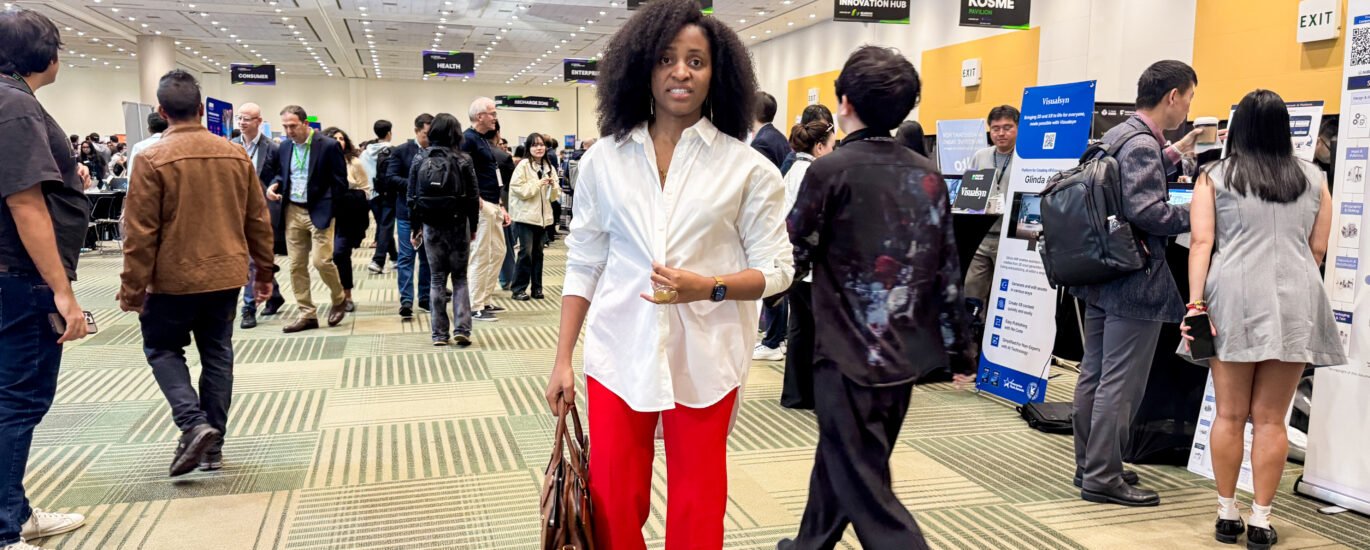


There’s something poetic about building the future while suspended between worlds.
Somewhere between Detroit and San Francisco, I opened my laptop, connected to inflight WiFi, and began refining the game design documents for Q2’s Kwathu Smart Innovation Farms (KSIF) — our simulation that blends agriculture, play, and entrepreneurship. It felt almost absurd and beautiful at once: me, 35,000 feet above the ground, sketching out systems for how young people in Africa could play | [L]earn | build their way into the future.
To me, the WiFi was more than just a connection; it was a metaphor — fragile, intermittent, but enough. Enough to upload ideas, download clarity, and collaborate with AI at a speed that still amazes me. Somewhere between turbulence and thought, I realized: this is what technology really means to me. It’s not the code or the device. It’s the bridge between imagination and possibility.
I’ve always seen AI as a creative partner — a quiet mirror that sharpens your thinking when you let it. On that flight, it became my co-designer. We structured loops, mapped character journeys, and aligned the reward systems that turn gameplay into learning. It wasn’t automation — it was amplification.
There’s a special intimacy in building with AI in silence. The plane hums like a heartbeat, and the cursor blinks in rhythm with your thoughts. You start to forget the distinction between tool and thought, between machine and mind.
It reminded me that the future isn’t coming — it’s already here. And it’s collaborative.
Landing in San Francisco felt like landing inside an idea. TechCrunch Disrupt was my first international tech conference — a whirlwind of startups, investors, and systems thinkers, all trying to out-imagine each other for a better tomorrow.
Now that the conference is done: I can say we truly had conversations that mattered. Alvaro and I, representing Q2 Corporation, shared our vision of building the next generation of sustainable, AI-powered systems from Africa outward. We connected, listened, and learned. And when the Waymo CEO spoke about autonomous innovation, something clicked: the same principles driving that car could drive our farms — sustainably powered, self-optimizing, human-centered.
But the real disruption, for me, came not from a product, but from a person.
Amid the chaos of Disrupt, I met Luca Oake, founder of YFFY, a startup centered around the radical idea of forgiveness. We filmed a Lessons Conversation together — one of those dialogues that stays with you long after the cameras stop.
Their philosophy was strikingly simple: forgiveness is a kind of human technology. A system reset. A way to rewrite the code of your own pain. It’s how we debug the emotional software that keeps us from evolving.
And it made me think — isn’t that what we do in every form of innovation? Whether you’re writing code, designing a game, or building a company, you have to forgive the failed versions of your vision. You have to forgive the system that shaped you — and sometimes, yourself, for outgrowing it.
Technology builds systems. Forgiveness sustains them.
The deeper I go into AI and development, the more convinced I am that emotional intelligence and artificial intelligence aren’t opposites — they’re collaborators. One designs efficiency; the other, empathy. Together, they might help us create systems that actually feel human again.
It’s strange, how an inflight WiFi connection, a robotics keynote, and a conversation about forgiveness could merge into a single realization: progress is circuitry and soul intertwined.
Somewhere over the Rockies, I looked out the window and saw the faint curvature of the earth. The world looked whole from up there — no borders, no algorithms, no grudges.
I thought about the farms we’re building, the simulations we’re crafting, and the lives that might shift because of them. And I thought about forgiveness — as design, as technology, as love in motion.
Maybe that’s what this decade will teach us: that the greatest innovation isn’t speed or scale — it’s grace.
If you’d like to go deeper into my journey — from Malawi, through the United Nations to Microsoft, you can find it in my books: